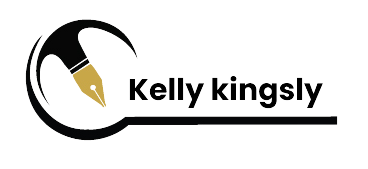Active Management of the Treasury: Instrument for Financing the Economy
Professor Kelly Kingsly
Independent; Copperstone University ; Charisma university
Date Written: January 31, 2017
Abstract
The process of regional integration is relatively well-advanced in the Central African region for financial operations and banking regulations. However, in other areas it is under-developed due to weak institutional capacity of regional bodies and physical barriers (transportation and communication networks). In addition the customs union is troubled by persistent fraud and smuggling activities. For example, some landlocked countries such as CAR typically only collect one-quarter of the customs duties they are owed because of widespread smuggling that occurs along the porous borders. (GIZ, 2015) There is a gap between the advanced rules for regional integration and the behavior on the ground. The latter continues to encourage the fragmentation of national markets. However banks, insurance and regulatory bodies operate on a regional basis.
The ECCAS was created largely to strengthen the process of regional economic integration and contribute to development in Central Africa. Compared to a number of regional integration efforts in Africa, CEMAC is relatively well developed as a monetary and customs union with a common external tariff (CET), defined criteria for macroeconomic convergence and an institutional structure for surveillance, as well as an institutional and historic base through which structural reforms can take place to achieve these objectives. According to Zafar and Kubota (2003), for Central African countries, regional integration offers many advantages including being the source of enhanced growth and economic efficiency by locking Central African countries into policy reform; providing a framework in which restrictive trade practices can be removed, customs procedures streamlined, macroeconomic policy surveillance increased, and greater fiscal discipline ensured; and an opportunity for the poorer land-locked economies (Chad and the CAR) whose economic survival depends on the coastal countries.
Financing a transformative development agenda in ECCAS countries members require that available resources be used more effectively and strategically to catalyze additional financing from official and private sectors. To achieve the above, the development of basic infrastructure (roads, bridges, schools, low cost housing, sports facilities, etc.) is indisputably one of the major thrusts of the majority of the sub region countries. ECCAS countries need therefore to step up efforts to finance their own development by improving domestic resource mobilization, including by strengthening tax administration, better harnessing natural resource revenue, and curbing illicit financial flows.
This initiative intends to reviews and proposes active management of the treasury as an instrument to finance the economy of ECCAS member countries like bond financing, institutional investors, Diaspora bonds, pull mechanisms, advance market commitments, resources-for-infrastructure deals, and climate finance. Not all of these options are feasible in the case of ECCAS countries. In fact, the challenge and the objective of ECCAS countries as this initiative will recommend, lies in establishing a supporting sub regional-level policy framework and credible commitment to build sub regional capacity and combat bottom of the pyramid poverty in expanding and utilizing the options that the project aims to recommend and make them available as soon as possible to deal with financial challenges that the region faces.
Keywords: active management, state, liquidity, financing the economy, budgeting, project development
Suggested Citation: Kingsly, Professor kelly, Active Management of the Treasury: Instrument for Financing the Economy (January 31, 2017). Available at SSRN: https://ssrn.com/abstract=2909046
